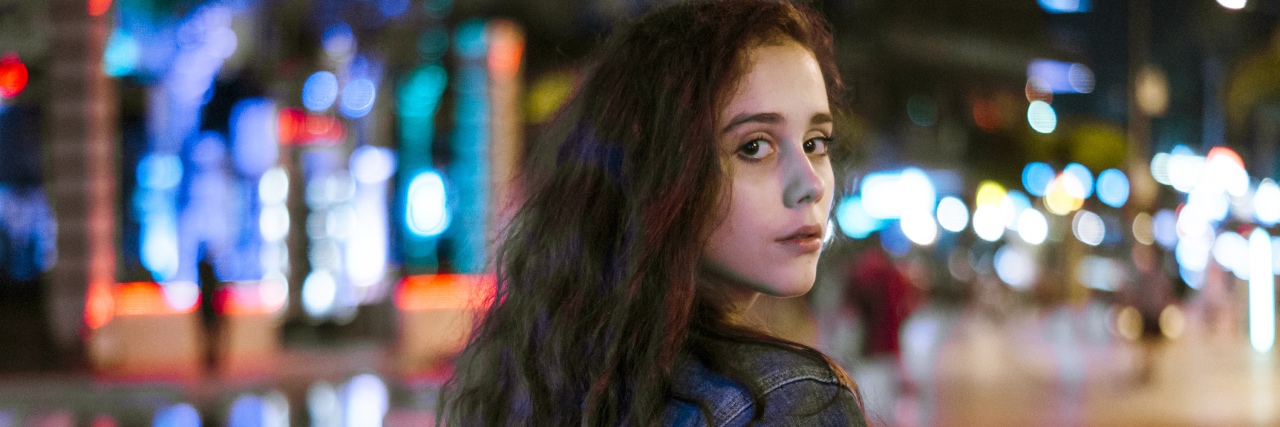In dealing with a disability, like many things, one of the hardest steps is acceptance of the situation. I believe a couple years after my diagnosis, I did find acceptance of it. Understanding that this is something that I will live with, likely, for the rest of my life.
But at 15 years old, it’s hard to really understand the magnitude of a lifelong chronic condition. So I hunkered on with the plans I had made. I believed that things I would go through would be more or less the same as my peers. And for several years in my teens, it was. Despite not being allowed to drive, things were very much normal. I went to football games, had sleepovers, class trips, looked at colleges I might attend, dated, and participated in honors classes and clubs. It was all, from an outside perspective, very average.
Other relevant stories:
• Autism and Epilepsy
• Can Epilepsy Come Back After Years
• Does Epilepsy Go Away
But there were little reminders that things were not average. If I stayed up late studying for a test, missing needed sleep, I would often have partial seizures in school. Not realizing that they were happening, I assumed everyone felt this way after a night of cramming. I assumed everyone else saw orbs of light appear, blurred vision, felt a washing over of confusion, and weak limbs. So I didn’t say anything. Just said I was tired or a had a headache, which was true. Many of my close friends had no idea I had epilepsy. I didn’t feel a need to tell people. Following my diagnosis, my doctor and family pushed me to tell not only my teachers, but close friends and the school administration. I didn’t feel embarrassed, just over-protected.
When I moved from middle school to high school, I didn’t do it all over again. I hadn’t had a seizure for six months prior, so I had felt positive in the possibility, that my doctor had stated, that it may be a fluke. Maybe I don’t have epilepsy. Despite the diagnosis, my doctors had seemed hopeful that it wasn’t that serious. The doctors at the children’s hospital were very positive. They wanted to paint the best picture and made me feel so comforted that I let the worry fade after a few months. It wasn’t that bad. I could go on to have a very normal life. With a normal MRI, the fear of cancer was no longer looming above me. No infections or tumors – everything seemed normal. So I didn’t talk about it.
But then I started getting daily migraines. I would come home from school everyday during my sophomore year needing to take a two hour nap. I would wake up for dinner, eat with my family, then stay up a few more hours to study and do homework. Then I would repeat that the next day. Headaches were not new to me, I had them all throughout my childhood, but now they were head splitting, “please turn off the light, god damn it” migraines that left me cranky and tired all day. The doctors said it was nothing. Fluorescent lights and the stress of high school can trigger them, even in a neurotypical person.
It wasn’t until my third seizure, one including a tumble down the stairs, did the worry of my “spells” come back. More tests ordered. CT, MRI, blood work, EEG, repeat. Again, the only abnormality being on the EEG. I knew how it was going to go before even starting the tests.
So I returned to school. This time, I told my close friends about what was happening. They understood the best teenagers can. Epilepsy isn’t like cancer, there’s no outpouring of support, no wristbands, no educational and inspirational talks by teachers. Most people, adults included, don’t understand and are made uncomfortable by it. People makes jokes. They are all played out and not funny anymore.
As I’ve grown into adulthood, my epilepsy has changed. Many doctors predicted it would go away with the end of my teenage years. It didn’t and that’s OK. But I wasn’t able to realize the full scope of it’s affects as a teen. As an adult, I’m being hit with many of the realities of this being my life.
Facing the reality that I may have to give up driving, the reality that motherhood would be incredibly hard, that working full-time is a challenge in itself, let alone finishing college at the same time. It’s hard. I can’t sugarcoat that and say it’s inspiring, moving or pushes me to be the absolute best me. Because most days, I want to give up, pretend it isn’t happening, and just curl up on the couch watching Netflix. But life keeps moving and I can’t stop.
So, I adjust, new medications, earlier bedtimes, becoming sober, and admitting that I need support. That I can’t always be 100 percent committed to school, work, friends, and hobbies. It’s hard because for so long, I had envisioned a certain path for my life and things have not gone that way (at all). This year I’ve been working towards acceptance that life isn’t what we plan for. I will not be done with this work by year’s end. This is a truth that may take my whole life to accept. And that’s OK.
Getty Image by adrianova_

